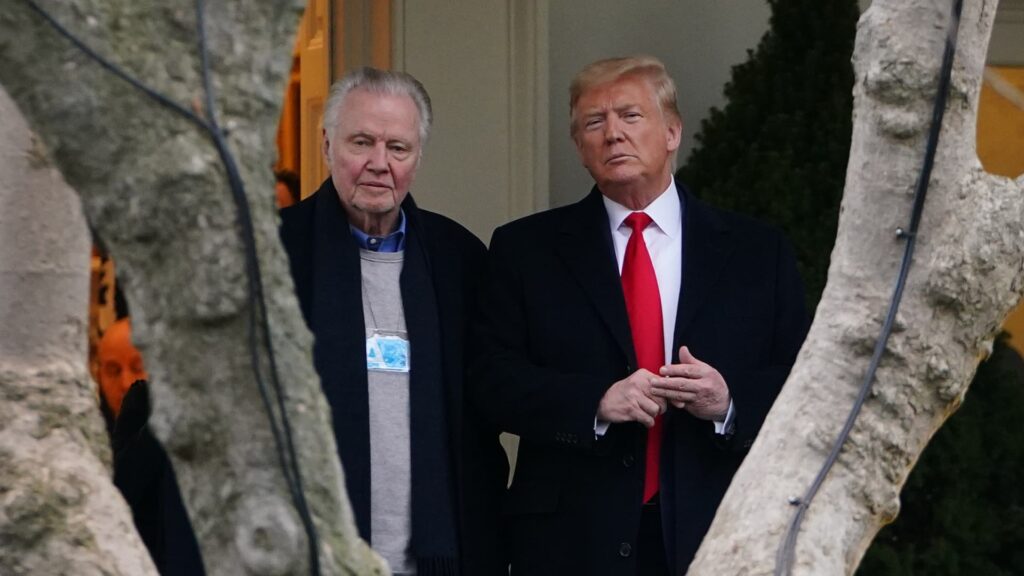
WASHINGTON, D.C. – A proposal to impose tariffs on foreign-produced films, initiated by actor Jon Voight, has led to uncertainty in Hollywood as President Trump considers new trade measures.
Breaking: Trump Considers Tariffs on Foreign Films
Actor Jon Voight and his manager recently presented President Donald Trump with a proposal suggesting tariffs on films produced outside the United States. This meeting led to Trump’s announcement authorizing the Commerce Department and U.S. trade representatives to begin the process of instituting a 100% tariff on foreign films. The announcement, made on Truth Social, has stirred panic and confusion across Hollywood studios and streaming services.
Immediate Impact on the Entertainment Industry
The announcement caused a temporary dip in share prices for major companies like Walt Disney Co. and Netflix. However, both Trump and the White House have since walked back the certainty of implementing these tariffs, seeking to quell industry fears.
“We look forward to working with the administration, the unions, studios, and streamers to help form a plan to keep our industry healthy,” said Jon Voight.
Key Details Emerge
Voight and his manager, Steven Paul, submitted a comprehensive plan to Trump, outlining changes needed to boost domestic film production. Their proposal includes federal tax incentives, changes to tax codes, co-production treaties with foreign countries, and infrastructure subsidies for various industry sectors.
The plan also emphasizes job training and tariffs in certain limited circumstances. The duo met with Trump at Mar-A-Lago over the weekend to discuss these ideas further.
Industry Response and Concerns
Trump’s initial proposal has met with resistance from Hollywood studios, prompting him to reconsider the approach. He stated his intention to consult with the industry to ensure any measures taken would support rather than harm it.
“I’m not looking to hurt the industry, I want to help the industry,” Trump told reporters. “So we’re going to meet with the industry.”
By the Numbers
– 100% proposed tariff on foreign-produced films
– Temporary dip in share prices for Disney and Netflix
– Comprehensive plan includes federal tax incentives and job training
What Comes Next
While no final decision has been made, the administration is exploring options to fulfill Trump’s directive to safeguard national and economic security. White House spokesman Kush Desai noted that discussions are ongoing.
Meanwhile, California Governor Gavin Newsom’s office responded, emphasizing the state’s commitment to supporting its film and television industry through tax credits and other incentives.
Background Context
The proposal from Voight and Paul comes at a time when the U.S. film industry faces challenges from international competition and domestic policy changes. Trump’s comments reflect a broader concern about maintaining American leadership in the entertainment sector.
“Hollywood doesn’t do very much of that business, they have the nice sign, and everything’s good, but they don’t do very much,” Trump remarked.
Expert Analysis
Industry analysts suggest that while tariffs could encourage domestic production, they may also lead to increased costs for consumers and strained international relations. The proposal’s success will likely depend on balancing protectionist measures with the need for global collaboration in film production.
As the administration continues to evaluate its options, stakeholders across the industry are closely monitoring developments. The outcome of these discussions could significantly impact Hollywood’s future and its global standing.






